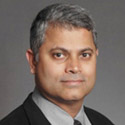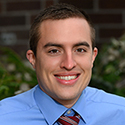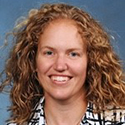MyChart
To register for MyChart, our patient communication and information system, please choose from the following options:
If you have an activation code from your enrollment letter/provider:
Don't have a code?
MyChart Resources
How-to guides and tips for MyChart Users
Get an immediate, self-serve price estimate through MyChart - no account or login required!
 Our program offers an obstetrics track for residents with a strong interest in family medicine obstetrics to help prepare them to actively practice obstetrics after graduation. We include emphasis on preconception, prenatal, intrapartum and postpartum care. The track typically has 1 – 2 residents per year, and selection into the track is made in spring of the intern year.
Our program offers an obstetrics track for residents with a strong interest in family medicine obstetrics to help prepare them to actively practice obstetrics after graduation. We include emphasis on preconception, prenatal, intrapartum and postpartum care. The track typically has 1 – 2 residents per year, and selection into the track is made in spring of the intern year. Our program offers a sports medicine track for residents interested in pursuing a Sports Medicine Fellowship after graduation. We follow track guidelines established by the American Medical Society of Sports Medicine (AMSSM) to give our residents the best chance of successfully matching into Sports Medicine Fellowship at the end of their residency. Our goal is to provide additional education, training, and exposure to the resident on top of the required core education provided at the residency. Matched residents can express interest in the track upon program entry.
Our program offers a sports medicine track for residents interested in pursuing a Sports Medicine Fellowship after graduation. We follow track guidelines established by the American Medical Society of Sports Medicine (AMSSM) to give our residents the best chance of successfully matching into Sports Medicine Fellowship at the end of their residency. Our goal is to provide additional education, training, and exposure to the resident on top of the required core education provided at the residency. Matched residents can express interest in the track upon program entry. Community Hospital East Family Medicine Residency and
Community Hospital East Family Medicine Residency and  Our program’s hospital medicine track is for residents interested in a career in hospital medicine after graduation. Residents can enter the track at the end of their first year of residency.
Our program’s hospital medicine track is for residents interested in a career in hospital medicine after graduation. Residents can enter the track at the end of their first year of residency.